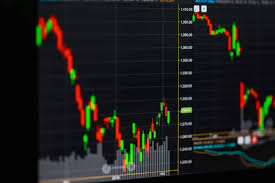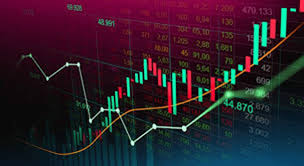
Understanding Forex Trading Brokers: A Comprehensive Guide
Forex trading brokers play a crucial role in the financial markets by providing traders access to currency pairs for buying and selling. They serve as intermediaries between traders and the forex market, allowing individuals to execute trades with ease and efficiency. For anyone looking to dive into forex trading, choosing the right broker is paramount. forex trading brokers Global Trading Brokers provide various platforms, tools, and services that can enhance a trader’s experience and success rate.
What is a Forex Trading Broker?
A forex trading broker is a firm that facilitates the buying and selling of currencies in the forex market. These entities enable traders to access the market by providing trading platforms, market analysis, and customer support. Brokers earn money through spreads, commissions, and fees charged for services rendered. Understanding the various types of brokers and their offerings can help traders make informed decisions.
Types of Forex Trading Brokers
There are several types of forex trading brokers, each catering to different trader needs:

- Market Makers: These brokers create their own market by quoting both buy and sell prices. They make money off the spread and may take the opposite side of a trader’s position.
- ECN Brokers: Electronic Communication Network (ECN) brokers provide direct access to the interbank market, allowing traders to connect with liquidity providers. They usually charge a commission per trade but offer tighter spreads.
- STP Brokers: Straight Through Processing (STP) brokers route traders’ orders directly to liquidity providers. They often display a combination of market maker and ECN features.
- DMA Brokers: Direct Market Access (DMA) brokers offer direct access to market data and facilitate trading at market prices, typically favored by institutional traders.
Criteria for Selecting a Forex Trading Broker
Selecting the right forex trading broker is essential for a trader’s success. Here are key criteria to consider:
- Regulation: It is essential that brokers are regulated by a recognized authority, such as the FCA, ASIC, or SEC. Regulation ensures that the broker adheres to industry standards and protects traders’ funds.
- Trading Platform: A user-friendly, reliable, and feature-rich trading platform is crucial. Popular platforms include MetaTrader 4, MetaTrader 5, and proprietary platforms tailored to specific broker services.
- Spreads and Fees: Understanding the broker’s fee structure is vital. Look for competitive spreads and low commissions, as these can significantly impact overall trading costs.
- Leverage and Margin: Different brokers offer various leverage options. Choose a broker that offers leverage suitable for your trading strategy and risk appetite.
- Customer Support: Reliable customer support can make a big difference, especially for new traders. Check if they provide support 24/7 and through various channels like chat, phone, or email.
- Deposits and Withdrawals: Examine the broker’s policies regarding deposits and withdrawals. Look for choices in funding methods, processing times, and any associated costs.
- Educational Resources: Quality brokers often provide educational content like webinars, articles, and tutorials to assist traders in developing their skills.
Benefits of Using a Forex Trading Broker
Engaging with a forex trading broker offers various advantages:

- Access to Markets: Brokers provide access to global currency pairs, enabling traders to participate in a liquid and dynamic market.
- Leverage Options: Forex brokers often offer leverage, allowing traders to control larger positions with a smaller amount of capital.
- Tools and Features: Many brokers provide advanced trading tools, including charting software and automated trading options, which can enhance trading strategies.
- Research and Analysis: Brokers often provide market analysis, news updates, and economic calendars to help traders make informed decisions.
Risks of Using Forex Trading Brokers
While there are many benefits, there are also risks associated with forex trading brokers:
- Scams and Unregulated Brokers: The forex market can attract unscrupulous brokers. It is essential to choose a regulated entity to minimize the risk of fraud.
- High Leverage Risks: While leverage can amplify profits, it also increases potential losses. Traders should use leverage cautiously and understand the risks involved.
- Slippage: In volatile markets, orders may not execute at the expected price, leading to slippage. Choosing a reputable broker can mitigate this risk.
Conclusion
Choosing the right forex trading broker can significantly affect your trading experience and success. By understanding the types of brokers, selection criteria, and associated benefits and risks, traders can make informed decisions that align with their trading strategies and goals. As the forex market continually evolves, staying informed and vigilant will help you navigate this exciting financial landscape successfully.

Recent Comments